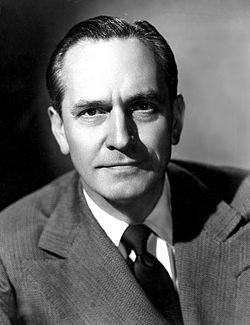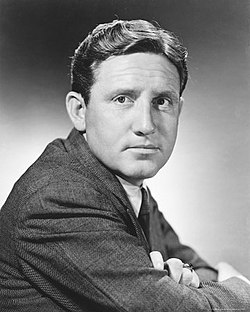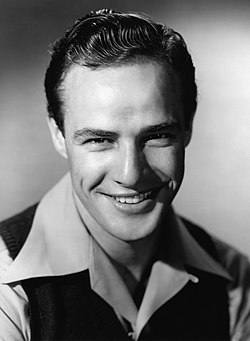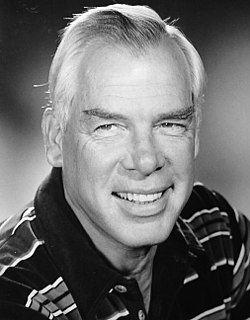Top Qs
Timeline
Chat
Perspective
Academy Award for Best Actor
Award presented annually by the Academy of Motion Picture Arts and Sciences From Wikipedia, the free encyclopedia
Remove ads
The Academy Award for Best Actor is an award presented annually by the Academy of Motion Picture Arts and Sciences (AMPAS). It has been awarded since the 1st Academy Awards to an actor who has delivered an outstanding performance in a leading role in a film released that year. The award is traditionally presented by the previous year's Best Actress winner. However, in recent years, it has shifted towards being presented by previous years' Best Actor winners instead.
The Best Actor award has been presented 97 times, to 86 actors. The first winner was German actor Emil Jannings for his roles in The Last Command (1928) and The Way of All Flesh (1927).[1] The most recent winner is Adrien Brody for The Brutalist (2024); he previously won the award for The Pianist (2002) at the age of 29, making him the category's youngest winner. The record for most wins is three, held by Daniel Day-Lewis, and ten other actors have won twice. The record for most nominations is nine, held jointly by Spencer Tracy and Laurence Olivier. At the 5th Academy Awards in 1932, Fredric March finished one vote ahead of Wallace Beery; under the rules of the time this resulted in them sharing the award, the only time this has occurred.
Remove ads
Nominations process
Summarize
Perspective
Nominees are currently determined by single transferable vote within the actors branch of AMPAS; winners are selected by a plurality vote from the entire eligible voting members of the Academy.[2]
In the first three years of the awards, actors and actresses were nominated as the best individuals in their categories. At that time, all of their work during the qualifying period (as many as three films, in some cases) was listed after the award.[3] Despite this, at the 3rd Academy Awards, held in 1930, only one film was cited in each winner's award regardless of how many they were eligible to be considered for during that span.[4] The current system, in which an actor is nominated for a specific performance in a single film, was introduced for the 4th Academy Awards.[3] Starting with the 9th Academy Awards, held in 1937, the category was limited to a maximum five nominations per year.[3]
Emil Jannings was the inaugural winner, for two films: The Last Command (1928) and The Way of All Flesh (1927).
Warner Baxter won for In Old Arizona (1928).
George Arliss won for Disraeli (1929).
Lionel Barrymore won for A Free Soul (1931).
Charles Laughton won for The Private Life of Henry VIII (1933).
Clark Gable won for It Happened One Night (1934).
Victor McLaglen won for The Informer (1935).
Paul Muni won for The Story of Louis Pasteur (1936).
Spencer Tracy was the first actor to consecutively win twice, for Captains Courageous (1937) and Boys Town (1938).
Robert Donat won for Goodbye, Mr. Chips (1939).
James Stewart won for The Philadelphia Story (1940).
James Cagney won for Yankee Doodle Dandy (1942).
Paul Lukas won for Watch on the Rhine (1943).
Bing Crosby won for Going My Way (1944).
Ray Milland won for The Lost Weekend (1945).
Ronald Colman won for A Double Life (1947).
Broderick Crawford won for All the King's Men (1949).
José Ferrer won for Cyrano de Bergerac (1950); Tony winner for the same role–first to accomplish this and the category's first latino winner.
Humphrey Bogart won for The African Queen (1951).
William Holden won for Stalag 17 (1953).
Ernest Borgnine won for Marty (1955).
Alec Guinness won for The Bridge on the River Kwai (1957).
David Niven won for Separate Tables (1958).
Charlton Heston won for Ben-Hur (1959).
Burt Lancaster won for Elmer Gantry (1960).
Maximilian Schell won for Judgment at Nuremberg (1961).
Gregory Peck won for To Kill a Mockingbird (1962).
Rex Harrison won for My Fair Lady (1964).
Paul Scofield won for A Man for All Seasons (1966).
Rod Steiger won for In the Heat of the Night (1967).
Cliff Robertson won for CHAЯLY (1968).
John Wayne won for True Grit (1969).
George C. Scott won for Patton (1970).
Gene Hackman won for The French Connection (1971).
Jack Lemmon won for Save the Tiger (1973).
Art Carney won for Harry and Tonto (1974).
Richard Dreyfuss won for The Goodbye Girl (1977).
Jon Voight won for Coming Home (1978).
Robert De Niro won for Raging Bull (1980).
Henry Fonda won for On Golden Pond (1981)
Ben Kingsley won for Gandhi (1982).
Robert Duvall won for Tender Mercies (1983).
F. Murray Abraham won for Amadeus (1984).
William Hurt won for Kiss of the Spider Woman (1985).
Paul Newman won for The Color of Money (1986).
Michael Douglas won for Wall Street (1987).
Daniel Day-Lewis won thrice, for My Left Foot (1989), There Will Be Blood (2007), and Lincoln (2012).
Jeremy Irons won for Reversal of Fortune (1990).
Anthony Hopkins won twice, for The Silence of the Lambs (1991) and The Father (2020)—the latter rendering him the overall oldest acting winner, at age 83.
Al Pacino won for Scent of a Woman (1992).
Nicolas Cage won for Leaving Las Vegas (1995).
Geoffrey Rush won for Shine (1996).
Roberto Benigni won for Life Is Beautiful (1997); first Italian-spoken role to win for the category.
Kevin Spacey won for American Beauty (1999).
Russell Crowe won for Gladiator (2000).
Denzel Washington won for Training Day (2001).
Jamie Foxx won for Ray (2004).
Philip Seymour Hoffman won for Capote (2005).
Forest Whitaker won for The Last King of Scotland (2006).
Jeff Bridges won for Crazy Heart (2009).
Colin Firth won for The King's Speech (2010).
Jean Dujardin won for The Artist (2011).
Matthew McConaughey won for Dallas Buyers Club (2013).
Eddie Redmayne won for The Theory of Everything (2014).
Leonardo DiCaprio won for The Revenant (2015).
Casey Affleck won for Manchester by the Sea (2016).
Gary Oldman won for Darkest Hour (2017).
Rami Malek won for Bohemian Rhapsody (2018).
Joaquin Phoenix won for Joker (2019).
Will Smith won for King Richard (2021).
Brendan Fraser won for The Whale (2022).
Cillian Murphy won for Oppenheimer (2023).
Remove ads
Winners and nominees
Summarize
Perspective
In the following table, the years are listed as per Academy convention, and generally correspond to the year of film release in Los Angeles County; the ceremonies are always held the following year.[5] For the first five ceremonies, the eligibility period spanned twelve months, from August 1 to July 31.[6] For the 6th ceremony held in 1934, the eligibility period lasted from August 1, 1932, to December 31, 1933.[6] Since the 7th ceremony held in 1935, the period of eligibility became the full previous calendar year from January 1 to December 31.[6]
1920s
1930s
1940s
1950s
1960s
1970s
1980s
1990s
2000s
2010s
2020s
Remove ads
Multiple awards and nominations
Summarize
Perspective
The following individuals won two or more Academy Awards for Best Actor:
The following individuals received three or more Best Actor nominations:
Age superlatives
Remove ads
Films with multiple Leading Actor nominations
Winners are in bold.
- Mutiny on the Bounty (1935) – Clark Gable, Charles Laughton, and Franchot Tone
- Going My Way (1944) – Bing Crosby and Barry Fitzgerald
- From Here to Eternity (1953) – Montgomery Clift and Burt Lancaster
- Giant (1956) – James Dean and Rock Hudson
- The Defiant Ones (1958) – Tony Curtis and Sidney Poitier
- Judgment at Nuremberg (1961) – Maximilian Schell and Spencer Tracy
- Becket (1964) – Richard Burton and Peter O'Toole
- Midnight Cowboy (1969) – Dustin Hoffman and Jon Voight
- Sleuth (1972) – Michael Caine and Laurence Olivier
- Network (1976) – Peter Finch and William Holden
- The Dresser (1983) – Tom Courtenay and Albert Finney
- Amadeus (1984) – F. Murray Abraham and Tom Hulce
Remove ads
Multiple character nominations
Summarize
Perspective
The following were nominated for their portrayals of the same fictional or non-fictional character in separate films (including variations of the original).
Winners are in bold.
- Cyrano de Bergerac from Cyrano de Bergerac (José Ferrer, 1950) and Cyrano de Bergerac (Gérard Depardieu, 1990)
- Eddie "Fast Eddie" Felson from The Hustler (Paul Newman, 1961) and The Color of Money (Paul Newman, 1986)
- Father Chuck O'Malley from Going My Way (Bing Crosby, 1944) and The Bells of St. Mary's (Bing Crosby, 1945)
- Joe Pendleton from Here Comes Mr. Jordan (Robert Montgomery, 1941) and Heaven Can Wait (Warren Beatty, 1978)
- King Henry II from Becket (Peter O'Toole, 1964) and The Lion in Winter (Peter O'Toole, 1968)
- King Henry V from Henry V (Laurence Olivier, 1946) and Henry V (Kenneth Branagh, 1989)
- King Henry VIII from The Private Life of Henry VIII (Charles Laughton, 1933) and Anne of the Thousand Days (Richard Burton, 1969)
- Mr. Chipping from Goodbye, Mr. Chips (Robert Donat, 1939) and Goodbye, Mr. Chips (Peter O'Toole, 1969)
- Norman Maine (né Hinkle/né Ernest (Sidney) Gubbins) from A Star Is Born (Fredric March, 1937) and A Star Is Born (James Mason, 1954)
- Jackson "Jack" Maine from A Star Is Born (Bradley Cooper, 2018)
- President Abraham Lincoln from Abe Lincoln in Illinois (Raymond Massey, 1940) and Lincoln (Daniel Day-Lewis, 2012)
- President Richard Nixon from Nixon (Anthony Hopkins, 1995) and Frost/Nixon (Frank Langella, 2008)
- Professor Henry Higgins from Pygmalion (Leslie Howard, 1938) and My Fair Lady (Rex Harrison, 1964)
- Rooster Cogburn from True Grit (John Wayne, 1969) and True Grit (Jeff Bridges, 2010)
- Vincent van Gogh from Lust for Life (Kirk Douglas, 1956) and At Eternity's Gate (Willem Dafoe, 2018)
Remove ads
See also
- Academy Award for Best Actress
- All Academy Award acting nominees
- List of actors with more than one Academy Award nomination in the acting categories
- List of actors with two or more Academy Awards in acting categories
- BAFTA Award for Best Actor in a Leading Role
- César Award for Best Actor
- Critics' Choice Movie Award for Best Actor
- Golden Globe Award for Best Actor in a Motion Picture – Drama
- Golden Globe Award for Best Actor in a Motion Picture – Musical or Comedy
- Independent Spirit Award for Best Lead Performance
- Screen Actors Guild Award for Outstanding Performance by a Male Actor in a Leading Role
- List of Academy Award–nominated films
Remove ads
Notes
- A^ : According to longstanding Hollywood legend,[108] reported by Susan Orlean,[109] Rin Tin Tin actually received the most Best Actor votes, but the Academy (not wishing to give the first award to a dog) refactored the votes to ensure that Jannings won.[110]
- B^ :The Circus originally received three nominations: Best Director (Comedy Picture), Best Actor, and Best Writing (Original Story) – for Charles Chaplin. However, the Academy subsequently decided to remove Chaplin's name from the competitive award categories and instead to confer upon him a Special Award "for acting, writing, directing and producing The Circus".[8]
- C1 2 3 : Rules at the time of the first three ceremonies allowed for a performer to receive a single nomination which could his or her work in more than one film. George Arliss, Maurice Chevalier, and Ronald Colman were all nominated for two different roles in the same category. Current Academy rules forbid this from happening. No official reason was ever given as to why Arliss won the award for only one of the two films he was listed for.[111]
- D1 2 : Fredric March received one more vote than Wallace Beery. Academy rules at that time considered such a close margin to be a tie, so both March and Beery received the award. Currently, Academy rules stipulate that a tie must result from exactly the same number of votes.[112]
- E^ : As in the previous year when the Academy relaxed the rules to allow write-in votes following the outcry over Bette Davis's snub for Of Human Bondage, the Academy permitted write-in votes for that year as well. Thus, Paul Muni received a write-in nomination for his performance in Black Fury and actually finished second in the votes. Although as with Davis the previous year, the Academy did not recognize these two as "official nominees", they are nevertheless listed on the official website amongst their respective years' nominations for posterity's sake.[113]
- F^ : Due to category confusion, Barry Fitzgerald received nominations (each for the same performance as Father Fitzgibbon in Going My Way) in both the leading and supporting actor categories for 1944, winning the Oscar for the latter. As a result of this confusion, the Academy amended its rules so that if any actor or actress received enough votes to qualify as one of the final five nominees for both again, the performer would only receive the nomination for the category in which he or she obtained the larger percentage of the votes.[114]
- The 2nd Academy Awards is unique in being the only occasion where there were no official nominees. Subsequent research by AMPAS has resulted in a list of unofficial or de facto nominees, based on records of which films were evaluated by the judges.
Remove ads
References
Bibliography
External links
Wikiwand - on
Seamless Wikipedia browsing. On steroids.
Remove ads






















































































